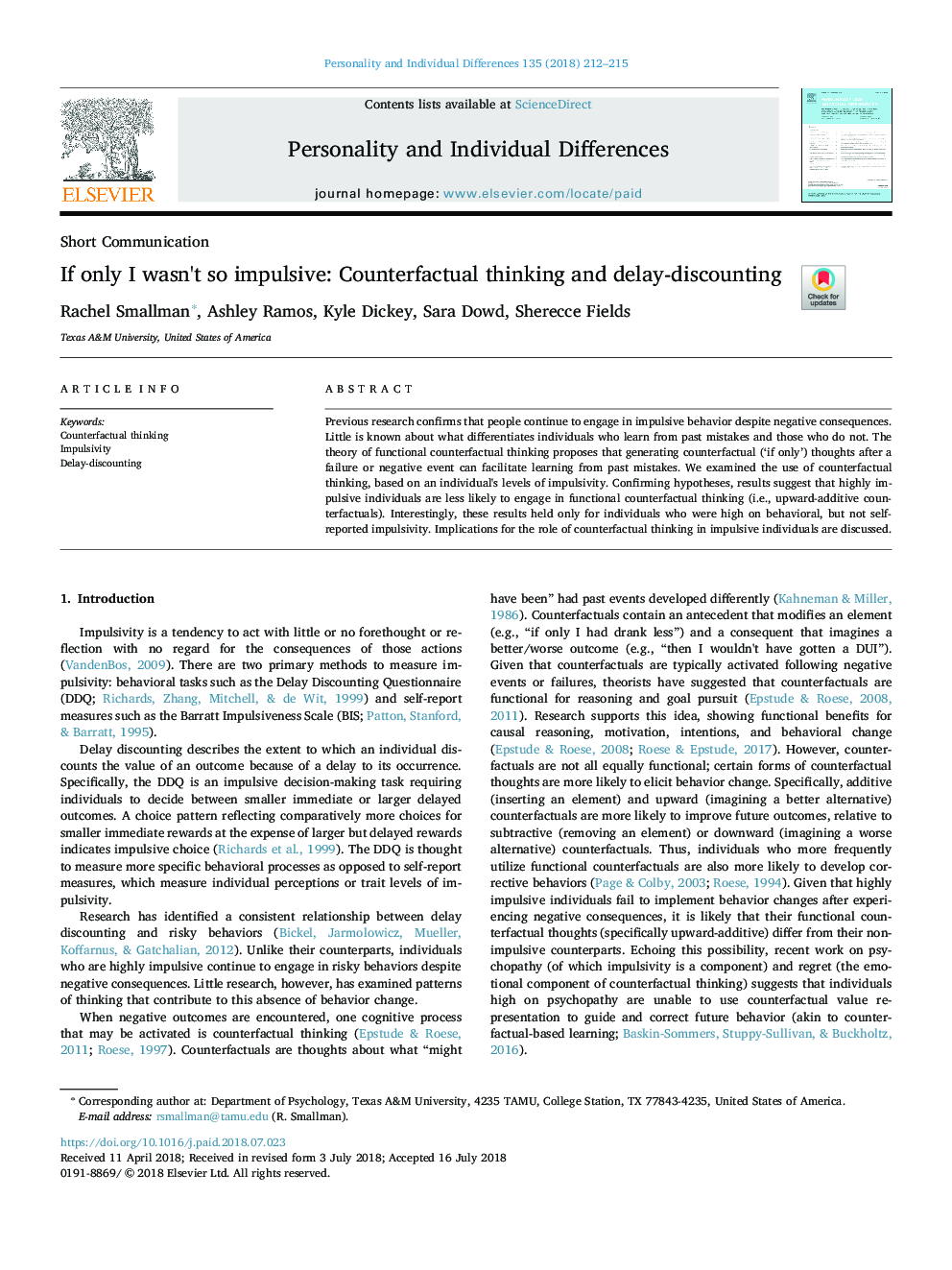| Article ID | Journal | Published Year | Pages | File Type |
|---|---|---|---|---|
| 7248452 | Personality and Individual Differences | 2018 | 4 Pages |
Abstract
Previous research confirms that people continue to engage in impulsive behavior despite negative consequences. Little is known about what differentiates individuals who learn from past mistakes and those who do not. The theory of functional counterfactual thinking proposes that generating counterfactual ('if only') thoughts after a failure or negative event can facilitate learning from past mistakes. We examined the use of counterfactual thinking, based on an individual's levels of impulsivity. Confirming hypotheses, results suggest that highly impulsive individuals are less likely to engage in functional counterfactual thinking (i.e., upward-additive counterfactuals). Interestingly, these results held only for individuals who were high on behavioral, but not self-reported impulsivity. Implications for the role of counterfactual thinking in impulsive individuals are discussed.
Related Topics
Life Sciences
Neuroscience
Behavioral Neuroscience
Authors
Rachel Smallman, Ashley Ramos, Kyle Dickey, Sara Dowd, Sherecce Fields,
